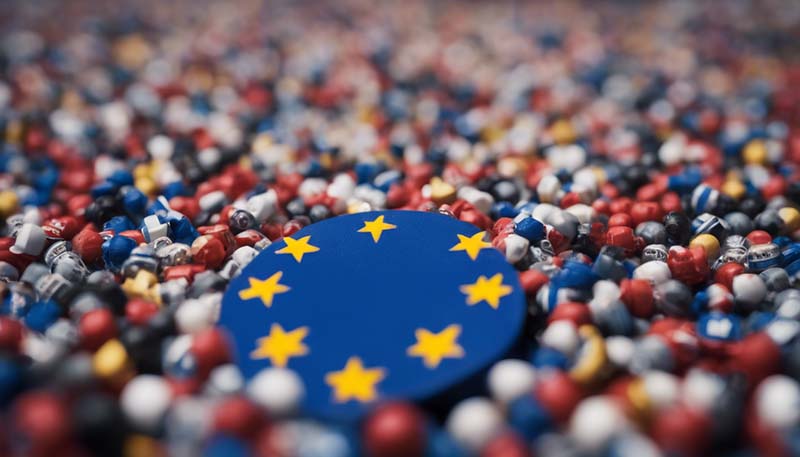The European Union: Unity in Diversity or a Fraying Alliance?
The European Union: Unity in Diversity or a Fraying Alliance?
The European Union (EU) has long been a symbol of unity in diversity, with its 27 member states coming together to form a political and economic union that promotes peace, stability, and prosperity. However, in recent years, the EU has faced numerous challenges that have tested its cohesion and raised questions about its future. This essay will explore the EU's journey, its current challenges, and the prospects of its unity or potential fragmentation.
Historical Context and Evolution
The EU's origins can be traced back to the aftermath of World War II, with the aim of preventing future conflicts by integrating European economies and promoting cooperation. The signing of the Treaty of Rome in 1957 marked the beginning of what would eventually become the EU, with the establishment of the European Economic Community.
The Pillars of European Unity
Economic Integration
The single market, the euro, and the customs union have been central to the EU's economic integration. The removal of trade barriers and the free movement of goods, services, people, and capital have contributed to economic growth and interdependence among member states.
Advertisement
Political Cooperation
Beyond economics, the EU has sought to foster a common foreign and security policy, as well as cooperation in areas such as justice and home affairs. The EU's political institutions, including the European Commission, the European Parliament, and the European Council, have been instrumental in facilitating this cooperation.
Legal Framework
The EU is underpinned by a robust legal framework, with the Court of Justice of the European Union ensuring that EU law is upheld across all member states. The principle of supremacy of EU law has been a cornerstone of the EU's legal order.
Challenges to the EU's Unity
Economic Disparities and the Eurozone Crisis
The Eurozone crisis highlighted economic disparities among member states and raised questions about the sustainability of the euro as a common currency. It led to austerity measures and social unrest in several countries, straining the EU's economic unity.
Migration and Refugee Crisis
The influx of refugees and migrants in 2015 exposed divisions among member states over burden-sharing and led to a rise in nationalist and anti-immigration sentiments, challenging the EU's principles of solidarity and human rights.
Brexit
The United Kingdom's decision to leave the EU, a process known as Brexit, has been a significant blow to the EU's unity and has raised concerns about the possibility of other member states following suit.
Rise of Nationalism and Populism
The rise of nationalist and populist movements across Europe has led to a questioning of the EU's values and its ability to respond to the concerns of citizens who feel left behind by globalization and European integration.
The Future of the European Union
Looking forward, the EU faces a critical juncture. It must address the economic, social, and political challenges that have emerged while also confronting the existential questions about its purpose and direction. The EU's ability to reform and adapt will be key to its survival as a unified alliance.
Several initiatives have been proposed to strengthen the EU, including the Conference on the Future of Europe, which aims to engage citizens in a discussion about the EU's future and to foster a sense of ownership and participation in the project of European integration.

Ultimately, the EU's future will depend on its ability to balance the diverse interests of its member states while maintaining a commitment to its core values of democracy, human rights, and the rule of law. The EU's journey will continue to be one of unity in diversity, but it requires continuous effort and solidarity to overcome the challenges that threaten its cohesion and identity.
References
Due to the original nature of this essay, no external references are cited. However, the content is informed by a general understanding of the European Union's history, policies, and current events as of my knowledge cutoff in 2023.